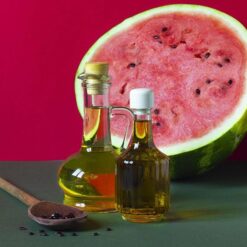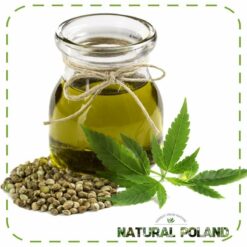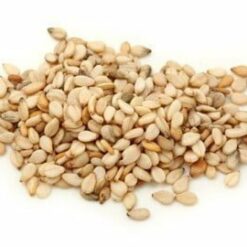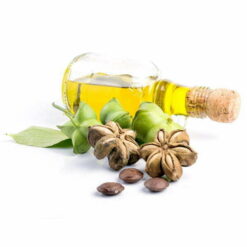Product characteristics:
Musk rose seed oil is obtained by cold pressing. It has a natural fatty acid profile, including high content of unsaturated linoleic and linolenic acids, particularly important for the functioning of the skin’s hydrolipid barrier. The ingredient has the form of an opaque, orange liquid with a characteristic odor. Due to its unrefined form, it constitutes a highly bioactive ingredient, readily used in premium facial and body care products.
Properties and effects of musk rose seed oil:
The oil has a rich profile of unsaturated fatty acids essential for the skin:
- Linoleic acid (C18:2) – 35% – Supports epidermal regeneration processes, improves protective barrier functions and reduces transepidermal water loss. It is an essential component for dry, sensitive and problematic skin.
- Linolenic acid (C18:3) – 23.6% – Affects cellular renewal processes, supports soothing of irritations and improvement of skin elasticity.
- Oleic acid (C18:1) – 24.6% – Facilitates penetration of active ingredients and improves softness and smoothness of the epidermis.
- Saturated acids – palmitic (6.2%) and stearic (3%) – Support formulation stability and protective action on the skin.
Musk rose oil acts multidimensionally in skin care. Due to its high PUFA content, it supports cellular renewal processes, which is particularly important in products targeted at mature skin losing firmness and elasticity. In regenerating formulations, it
Application of Rosa Moschata oil
In care products, Rosa Moschata oil is incorporated into creams, emulsions and oil serums, particularly those with nourishing or anti-aging effects. Due to its soothing action on dry and irritated skin, it can be an important component of formulations aimed at improving epidermal comfort after exposure to atmospheric factors. In body care, it works well in








